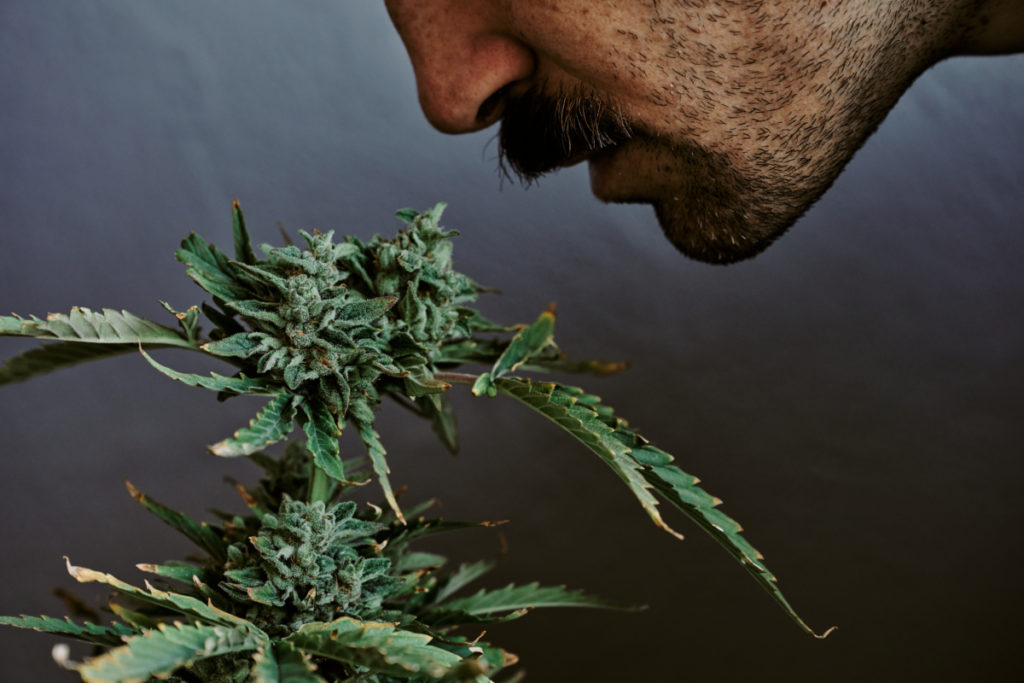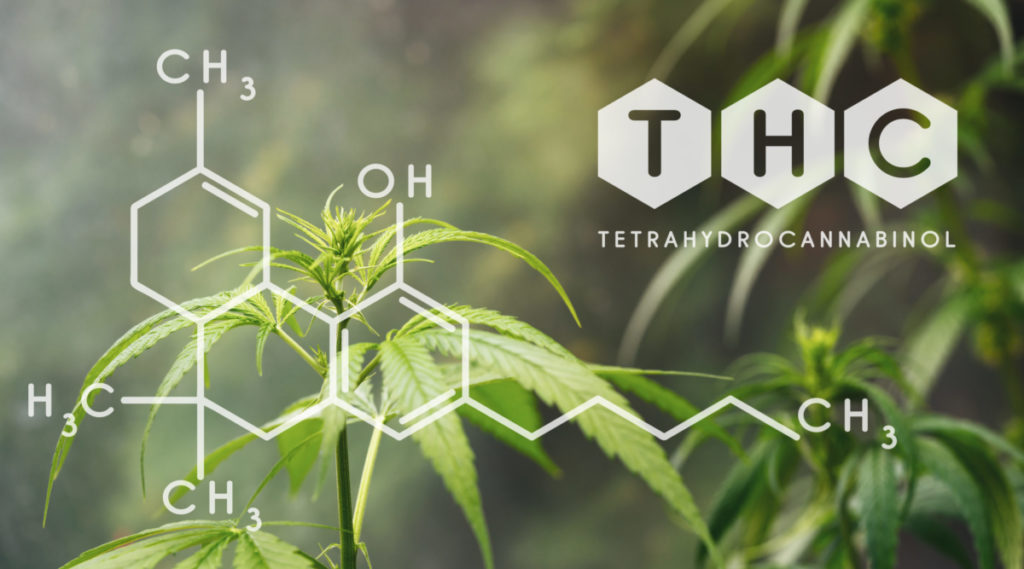CBN (Cannabinol) is a cannabinoid compound found in the cannabis plant. One of the common questions surrounding CBN is whether it is psychoactive. To answer this question directly, Is CBN psychoactive? Yes, CBN has some psychoactive properties, but its effects are generally considered to be mild compared to other cannabinoids such as THC (tetrahydrocannabinol). Is CBN psychoactive? Let’s delve deeper into the topic.
CBN is formed through the degradation of THC, as cannabis ages or undergoes exposure to light and air. While CBN does have some psychoactive effects, they are typically described as more sedating and relaxing rather than inducing a “high” or intense euphoria. Is CBN psychoactive? It is important to note that the psychoactive effects of CBN are generally less pronounced than those of THC.
Although CBN has some psychoactive properties, it is believed to be less potent than THC in producing intoxicating effects. Is CBN psychoactive? The answer is yes, but its psychoactivity is often described as mild and more focused on promoting relaxation and sleep. This makes CBN a potentially valuable cannabinoid for those seeking relief from insomnia or anxiety without the strong psychoactive effects associated with THC.

Understanding Psychoactivity
Psychoactivity refers to the ability of a substance to affect the brain and alter mental state or perception. When a compound is psychoactive, it can have various effects on cognition, mood, consciousness, and sensory perception.
THC (Tetrahydrocannabinol) is the primary psychoactive compound in cannabis:
THC is the primary psychoactive compound found in cannabis. It interacts with specific receptors in the brain, known as cannabinoid receptors, which are part of the endocannabinoid system. When THC binds to these receptors, it produces a range of psychoactive effects, including euphoria, relaxation, altered perception of time, and changes in sensory perception.
It’s important to note that the psychoactivity of THC can vary depending on the concentration and dosage. Higher doses of THC are more likely to induce stronger psychoactive effects, potentially leading to feelings of intoxication or impairment. Now, let’s explore whether CBN, another cannabinoid found in cannabis, shares the same psychoactive properties as THC or if it offers a different experience altogether.
Differentiating CBN from THC
Overview of the chemical composition and properties of CBN:
CBN, or Cannabinol, is one of the many cannabinoids found in cannabis plants. It is formed through the degradation of THC (Tetrahydrocannabinol) over time or when exposed to air and light. Unlike THC, which is present in fresh cannabis flowers, CBN is typically found in aged or oxidized cannabis products.
CBN is a non-intoxicating cannabinoid, meaning it does not produce the same psychoactive effects as THC. It interacts with the body’s endocannabinoid system, but its affinity for cannabinoid receptors, particularly CB1 receptors in the central nervous system, is much lower than that of THC. As a result, CBN has a minimal psychoactive impact on mental state or perception.
Also Read: Can CBN (Cannabinol) Or CBD Cause Me To Fail A Drug Test?
Highlighting the key differences between CBN and THC in terms of psychoactivity:
The main psychoactive compound in cannabis is THC. It binds strongly to CB1 receptors in the brain, leading to the characteristic euphoria, altered perception, and intoxicating effects associated with cannabis use. CBN, on the other hand, has a much weaker binding affinity to CB1 receptors and does not produce the same intense psychoactive effects as THC.
CBN is often described as having a more sedative or relaxing effect compared to THC. It is believed to contribute to the “couch-lock” sensation often associated with Indica strains of cannabis. However, it is important to note that the effects of CBN can vary depending on the individual, dosage, and other factors.
In summary, CBN is a cannabinoid derived from the degradation of THC in cannabis. It has minimal psychoactive properties and does not produce the same intoxicating effects as THC. While CBN is known for its potential sedative effects, further research is needed to fully understand its properties and therapeutic potential.
CBN’s Effects on the Body
Exploring the potential effects of CBN on the endocannabinoid system:
The endocannabinoid system (ECS) is a complex cell-signaling system present in the human body that plays a crucial role in regulating various physiological processes, including mood, sleep, appetite, pain sensation, and immune function. The ECS consists of cannabinoid receptors, endocannabinoids (naturally occurring cannabinoids produced by the body), and enzymes involved in their synthesis and degradation.
CBN interacts with the endocannabinoid system by binding to cannabinoid receptors, although its affinity for these receptors is lower compared to THC. The two main cannabinoid receptors are CB1, primarily found in the brain and central nervous system, and CB2, predominantly located in immune cells and peripheral tissues.
CBN’s interaction with cannabinoid receptors, particularly CB1 receptors, can have various effects on the body. While its binding affinity is weaker than that of THC, it still exhibits some agonistic properties, meaning it can activate these receptors to a certain extent. This interaction may contribute to CBN’s potential sedative or relaxing effects.
Furthermore, CBN has been found to modulate the activity of other neurotransmitter systems in the brain. It may enhance the inhibitory effects of the neurotransmitter GABA (gamma-aminobutyric acid), which can promote relaxation and reduce anxiety. CBN may also affect other neurotransmitters involved in pain perception, inflammation, and immune response, although further research is needed to fully understand these mechanisms.
It is important to note that the research on CBN’s specific effects on the endocannabinoid system is still evolving, and much of the available knowledge is based on preclinical studies and anecdotal evidence. Further scientific investigations are necessary to elucidate the precise mechanisms of CBN’s action within the endocannabinoid system and its potential therapeutic applications.
Research Studies On CBN’s Psychoactivity
Overview of scientific studies that have investigated the psychoactive properties of CBN:
Scientific studies examining the psychoactive properties of CBN are relatively limited compared to research on other cannabinoids like THC. However, the available evidence suggests that CBN has minimal to no psychoactive effects on its own.
One study published in the Journal of Clinical Pharmacology investigated the psychoactive effects of CBN in human subjects. The researchers administered pure CBN to participants and evaluated its effects on cognitive performance, psychomotor function, and subjective experiences. The study found that CBN did not induce significant changes in cognitive function or produce noticeable psychoactive effects, such as alterations in mood or perception. Another study published in the British Journal of Pharmacology examined the psychoactive properties of CBN in comparison to THC.
The researchers conducted behavioral tests in mice to assess locomotor activity and other behavioral responses. The study concluded that CBN had minimal effects on psychomotor behavior, indicating a lack of significant psychoactivity.
It is worth noting that while CBN alone may not have significant psychoactive properties, its interaction with other cannabinoids, particularly THC, can modulate its effects. In cannabis plants, the levels of CBN are typically low compared to THC. However, as cannabis ages or undergoes decarboxylation (exposure to heat or light), THC can degrade and convert into CBN, resulting in increased CBN content. In such cases, the presence of CBN in combination with other cannabinoids may contribute to the overall psychoactive effects of cannabis products.
Also Read: Best CBN+CBD Products In 2023
Synergistic Effects of THC
Addressing the potential for CBN to enhance the psychoactive effects of THC:
The interaction between CBN and THC, as well as other cannabinoids present in cannabis, is an important consideration when discussing the psychoactive effects of CBN. While CBN is generally considered to have minimal psychoactivity on its own, it can potentially influence the overall psychoactive experience when combined with other cannabinoids, particularly THC. This concept is known as the entourage effect.
The entourage effect refers to the synergistic interaction among various compounds found in cannabis, including cannabinoids, terpenes, and other phytochemicals. According to this theory, these compounds work together to produce a collective effect that is greater than the sum of their individual effects.
In the case of CBN and THC, some studies suggest that CBN may have the ability to enhance the psychoactive effects of THC. This is believed to occur through various mechanisms, including the modulation of cannabinoid receptors and the influence on neurotransmitter systems in the brain.
For example, one study published in the journal Neuropharmacology found that CBN potentiated the effects of THC on locomotor activity and body temperature regulation in mice. The researchers observed that CBN increased the duration and intensity of THC-induced effects, indicating a possible synergistic interaction between the two cannabinoids.
It’s important to note that the entourage effect is not solely limited to the interaction between CBN and THC. Other cannabinoids, such as CBD and terpenes, also play a role in modulating the overall psychoactive experience. The specific composition and ratios of these compounds in a cannabis product can contribute to the varying psychoactive effects observed in different strains.
Also Read: Best THC-Free Natural CBN Tinctures In 2023
CBN’s Potential Therapeutic Benefits
Shifting the focus to CBN’s potential therapeutic properties rather than its psychoactivity:
While CBN’s psychoactive effects may be minimal, it is important to explore its potential therapeutic properties. Several studies have investigated the role of CBN in various areas of health and wellness, suggesting its potential benefits in pain relief, sleep regulation, and other areas.
- Pain Relief: Some research suggests that CBN may possess analgesic properties. A study published in the journal Pharmacology, Biochemistry, and Behavior found that CBN could prolong the pain-relieving effects of THC in mice. Additionally, another study in the European Journal of Pharmacology demonstrated that CBN reduced pain sensitivity in rats.
- Sleep Regulation: CBN has also been studied for its potential sleep-regulating properties. A study published in the journal Current Neuropharmacology indicated that CBN might prolong sleep time in rats. Furthermore, anecdotal evidence suggests that CBN-rich cannabis strains or products may have a calming and sedating effect that could aid in improving sleep quality.
- Anti-inflammatory Effects: Preliminary research has suggested that CBN may possess anti-inflammatory properties. A study published in the Journal of Dermatological Science found that CBN reduced inflammation in a skin model of psoriasis. This suggests that CBN could have potential applications in managing inflammatory conditions.
- Appetite Stimulation: CBN has been shown to have appetite-stimulating effects. A study published in Psychopharmacology demonstrated that CBN increased food intake in rats, potentially indicating its usefulness in conditions where appetite stimulation is desired.
- Neuroprotective Properties: Some studies have suggested that CBN may have neuroprotective effects. Research published in the journal Phytomedicine showed that CBN exerted neuroprotective effects in a mouse model of Huntington’s disease, potentially indicating its potential in treating neurodegenerative conditions.
- Antibacterial Activity: Preliminary research suggests that CBN may possess antibacterial properties. A study published in the journal Antibiotics demonstrated that CBN, along with other cannabinoids, showed antibacterial activity against methicillin-resistant Staphylococcus aureus (MRSA) strains.
It is important to note that further research is needed to fully understand and validate the therapeutic potential of CBN. While these studies provide promising insights, more extensive clinical trials, and research are necessary to establish its efficacy, optimal dosage, and potential interactions with other medications.
Also Read: Best CBN Products For A Good Night’s Sleep In 2023
Legal Considerations
Touching upon the legal status of CBN and cannabis-derived products containing CBN:
The legal status of CBN and cannabis-derived products varies depending on the jurisdiction. It is essential to understand the local regulations and laws surrounding the production, distribution, and use of CBN and cannabis products in your specific location.
In some regions, cannabis and its derivatives, including CBN, may be legal for medical or recreational use. In such cases, products containing CBN can be obtained from licensed dispensaries or authorized retailers. However, it is crucial to adhere to the regulations and guidelines set forth by the governing authorities.
On the other hand, in regions where cannabis remains illegal or strictly regulated, the legality of CBN products can be more complicated. Some jurisdictions may have specific restrictions on the concentration of THC allowed in cannabis products, and exceeding those limits could lead to legal consequences.
Moreover, the labeling of CBN and cannabis-derived products is of utmost importance. Reputable manufacturers and distributors will provide clear and accurate information on product labels, including the cannabinoid profile, THC content, and any other relevant details. Understanding the product’s composition and verifying its compliance with local regulations can help ensure legal and safe consumption.
To navigate the legal landscape surrounding CBN and cannabis-derived products, it is recommended to stay informed about the specific laws and regulations in your area. Consult with local authorities or seek legal advice if you have any uncertainties or questions regarding the legality of CBN and related products.
Remember, legal status can vary significantly from one jurisdiction to another, so it is essential to conduct thorough research and remain compliant with the applicable laws and regulations to ensure a lawful and responsible approach to CBN consumption.
Also Read: Best Quality CBN Products In 2023
Conclusion On Is CBN Psychoactive?
the question of whether CBN is psychoactive remains a topic of debate. Is CBN psychoactive? While some research suggests that CBN may have mild psychoactive effects, it is generally considered to be less potent than THC in terms of its psychoactivity. However, it is important to note that individual responses to CBN can vary.
Is CBN psychoactive? Some users report feeling relaxed or sedated after consuming CBN, but the overall psychoactive effects are considered to be milder compared to THC. Is CBN psychoactive? It is worth mentioning that the psychoactive effects of CBN are believed to be enhanced when combined with other cannabinoids, such as THC. Is CBN psychoactive? Therefore, it is advisable to exercise caution and start with low doses when consuming products containing CBN to gauge personal tolerance and response.
Interesting Reads:




